Going German: Eierkuchen with Speck
March 10, 2017
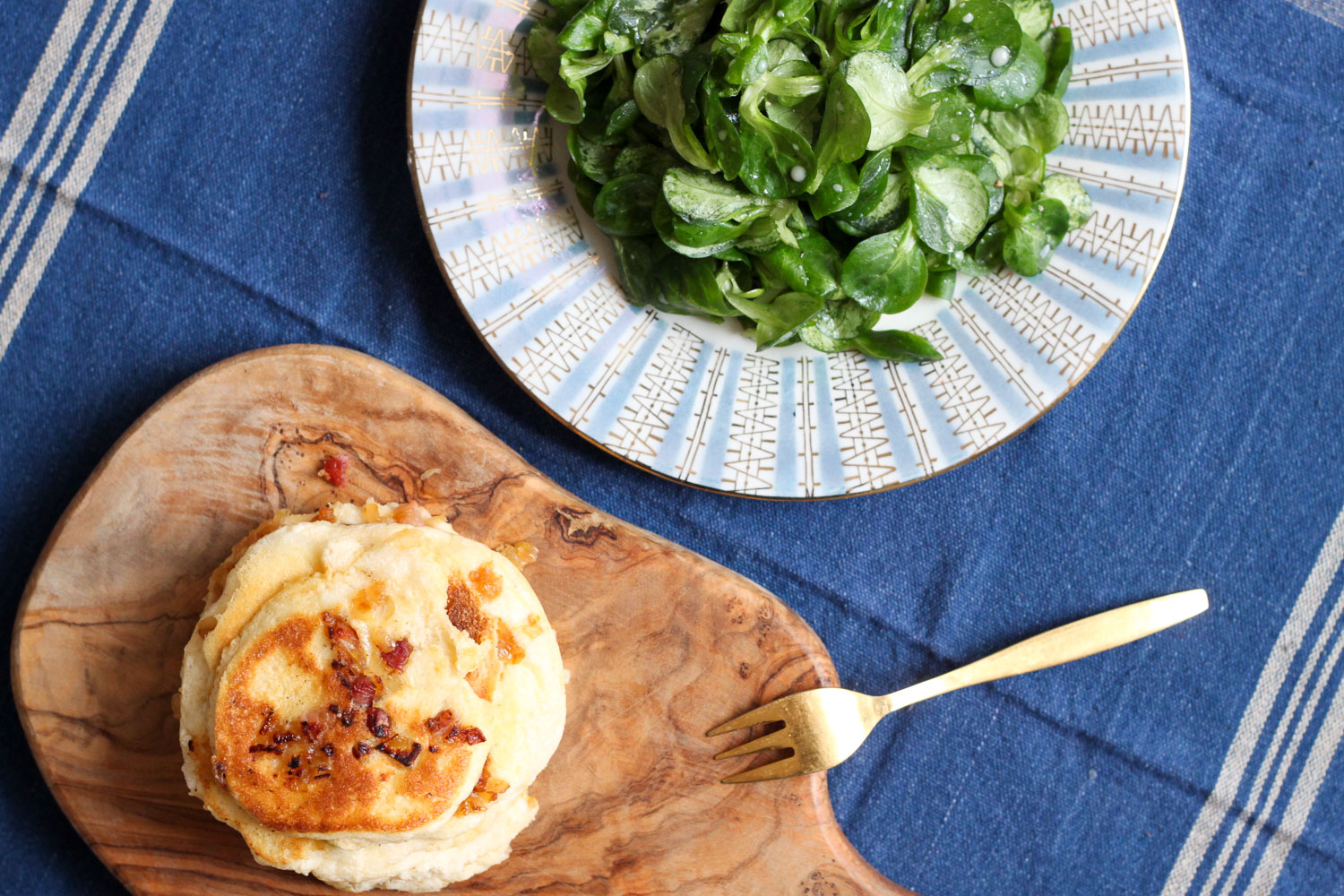
I realized recently with some surprise that I’ve been living in Germany for nearly six years. The time has manifested itself in subtle ways. I’ve gotten accustomed to long meals with infrequent attention from waitstaff, come to enjoy waiting for the light to turn green before crossing the street. I’ve gotten less good at small talk, more good at getting to the point (but clearly, not better at speaking English…). I’ve gotten used to just buying food for one meal at a time, since my fridge is too small to support much more than that. And I’ve gotten very good at packing up my groceries in record speed as the cashier’s speedy swiping slings them precipitously towards the counter’s edge.
My speaking skills certainly haven’t escaped unscathed. I find myself forgetting words, or grabbing for something in German that feels so much more specific. Like the other night, when I was telling a story about the sink my neighbors were throwing out, and I couldn’t just call it a “sink,” because it was more than a “sink” or even a “kitchen sink.” It was the kitchen sink with all its accoutrements and pipes and cabinet system – a Spüle in German. So many words in English. In German, just the one.
I’ve also gotten into the habit of ending my sentences with “or?” – a direct translation of the German “oder?,” which functions like “you know?” or “right?” but is certainly not something we say. And yet, it has ceased to sound odd to me.
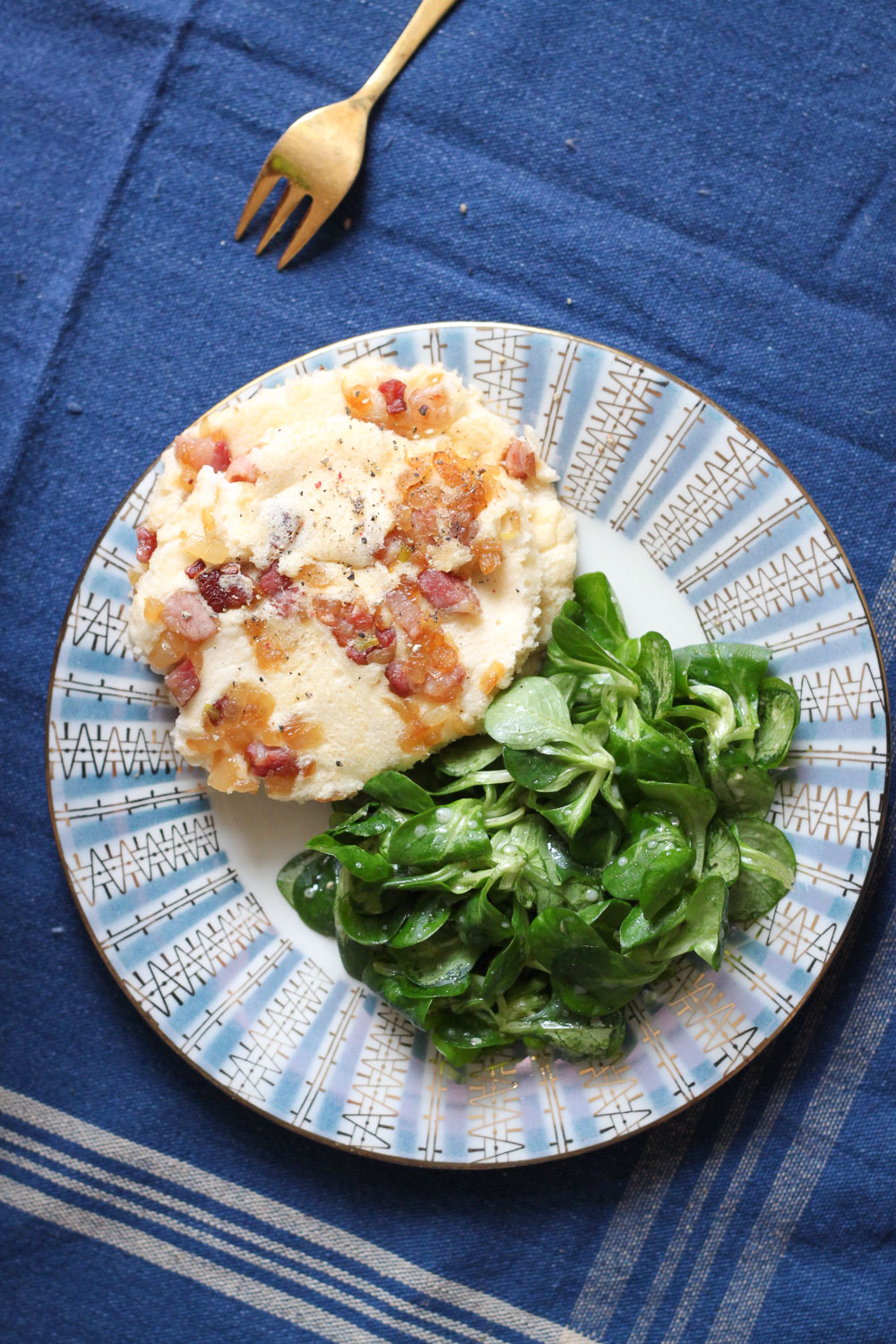
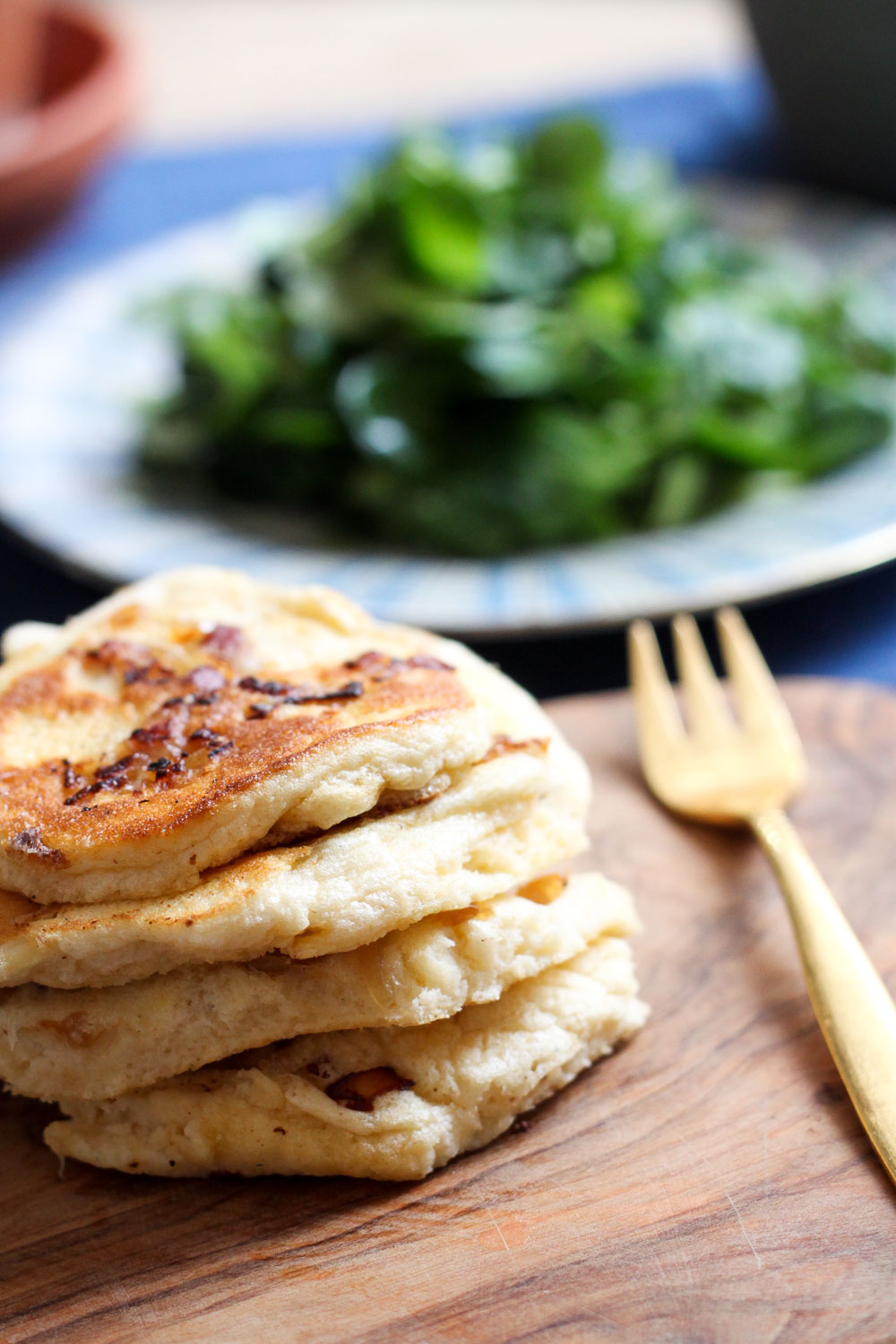
German has a reputation for being an ugly, angry-sounding language. And it’s not entirely inaccurate. There was that meme that went around some time ago with words in different languages… butterfly – papillon – mariposa – Schmetterling. But some German words are better than their English counterparts. They’re more mellifluous, mimetic. Take Gebirge, for example, meaning “mountains” or “mountain range.” Where “mountain” lunges forward in one final, slumped-down punch, “Gebirge” lilts up and down like a gentle slope, its three hard consonant sounds like peaks in a range.
And then there’s the word Knospen – meaning “buds” – and it seems to me the crisp, crackling of the word is like a small, tight blossom bursting into chilly spring air, before the slow languidness of warmer weather has a chance to gently open a word like “bud.”
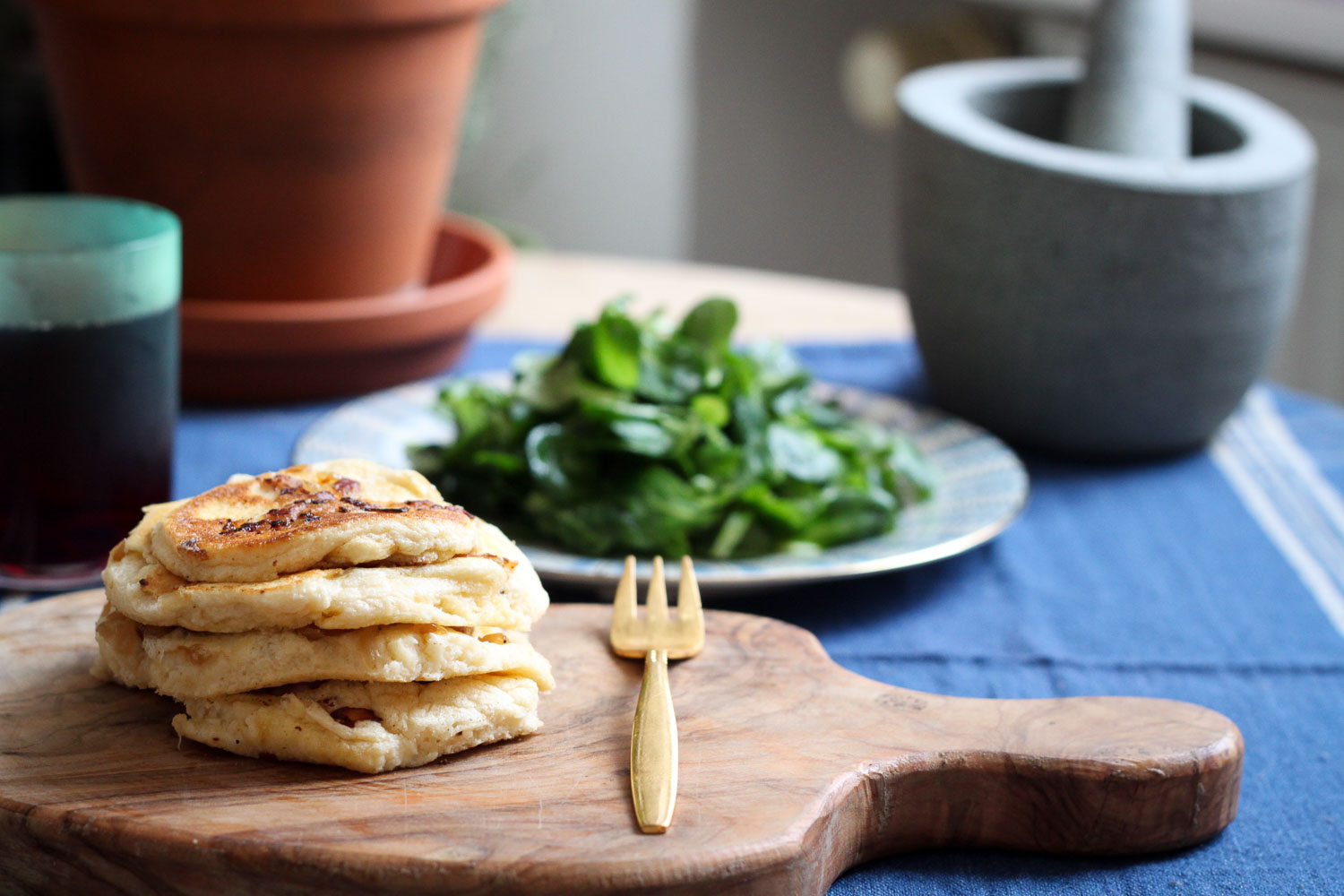
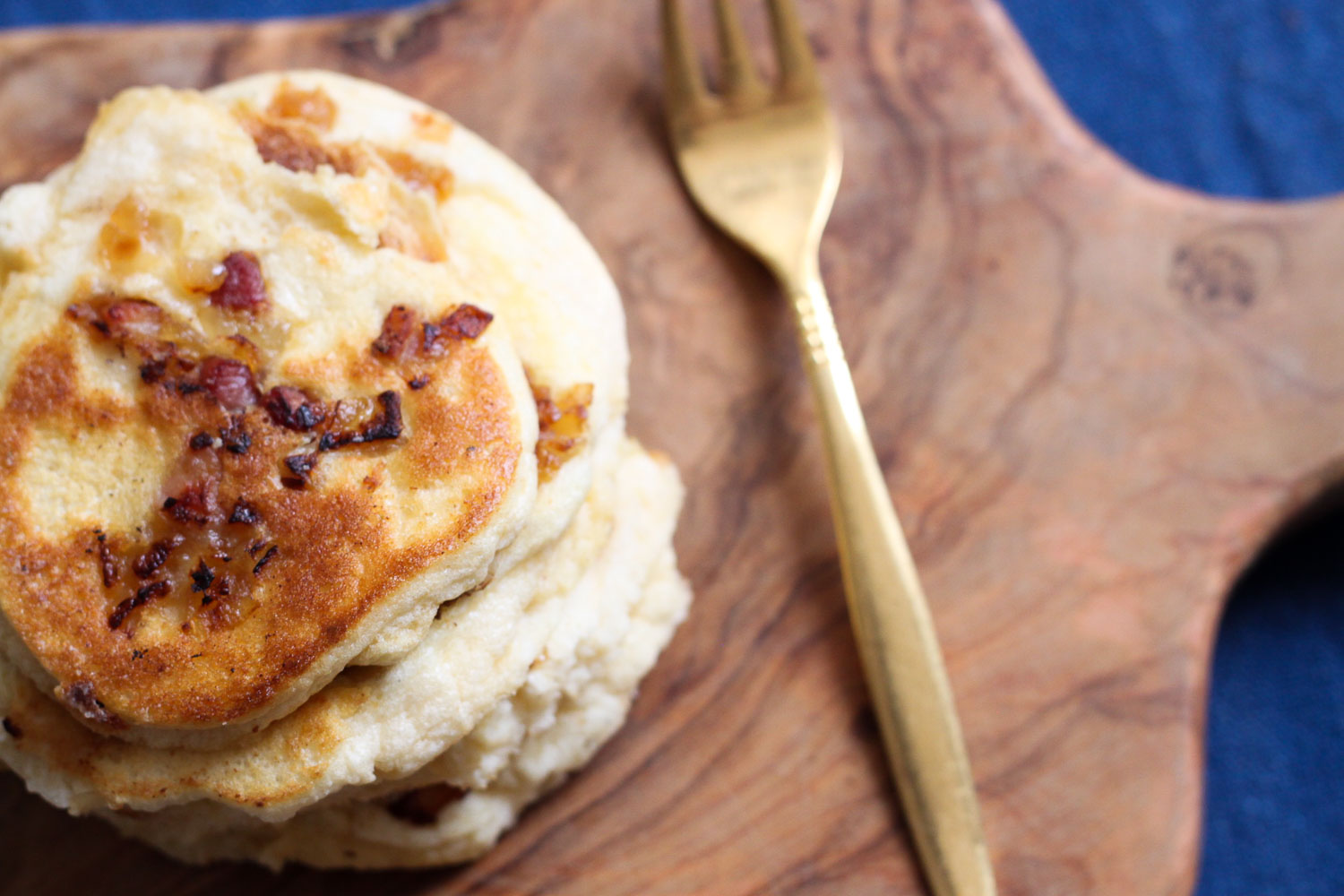
In the years I’ve been here, I’ve also become more German in my cooking – learning how to substitute for hot Italian sausage and what to do with celeriac. Though as time goes on, I keep more regularly encountering ingredients I once thought I’d have to do without – chicken wings and cilantro, peanut butter and cheddar cheese.
The reverse is also true. When I was a kid, no one back home knew what Nutella was. And all through school, I was a small-time hero coming home from vacations to Germany laden with Kinder chocolate, Milka, and Haribo.
In the meantime, that’s all old news. No one is impressed anymore by a block of marzipan or a Kinder Surprise, though there are still some foodstuffs that feel untranslatable. Like Schmalz, so ubiquitous in a German fridge, so sweet-sounding and tasty in a homespun way. Imagine a thick smear of Schmalz – maybe the kind cooked with apples and onions and bits of crackling – on a slice of thick, dark bread sprinkled with salt. It sounds delicious, even if Schmalz means nothing to you. But in English, Schmalz is lard. Imagine serving a slab of salted Crisco on toast. Impossible!
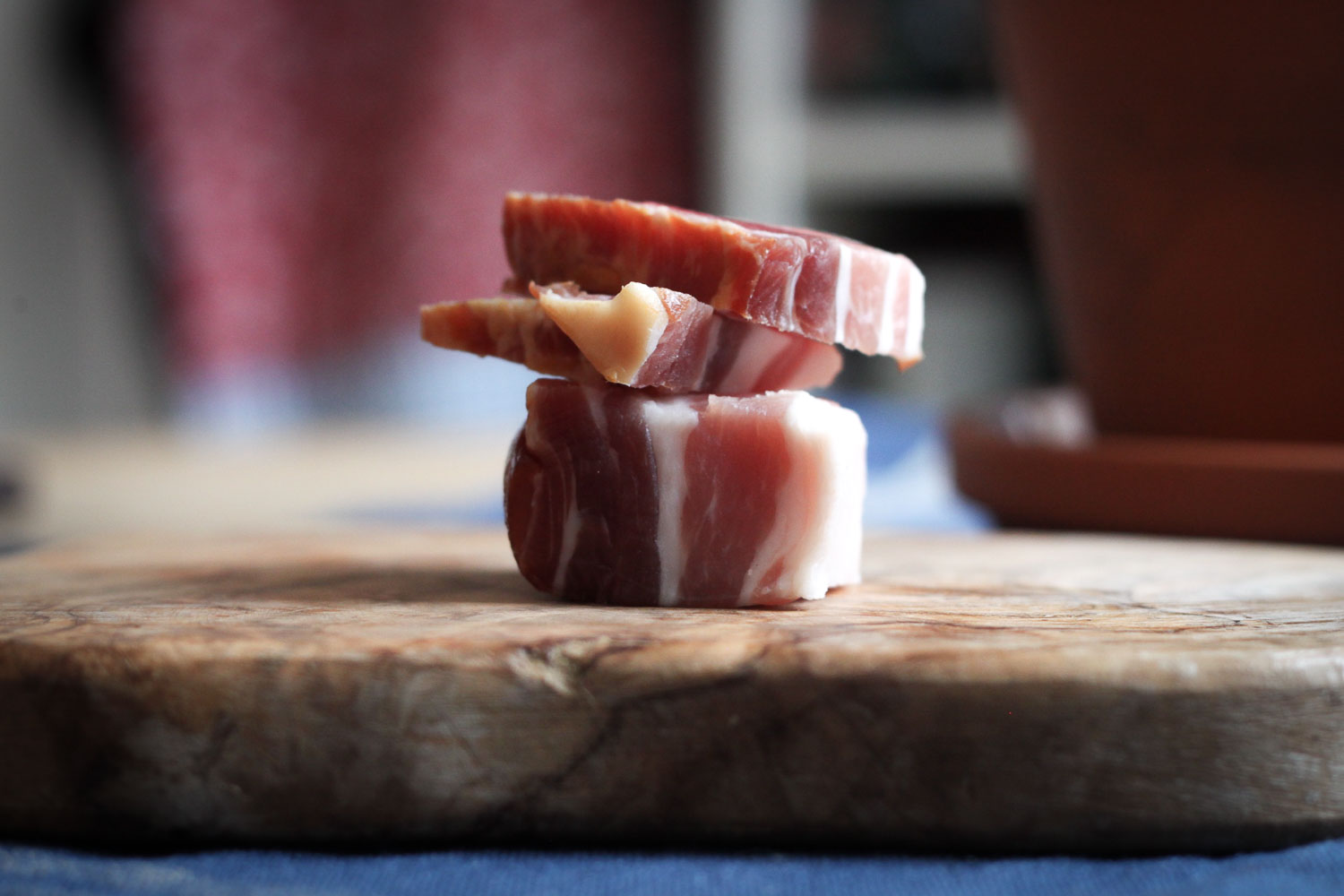
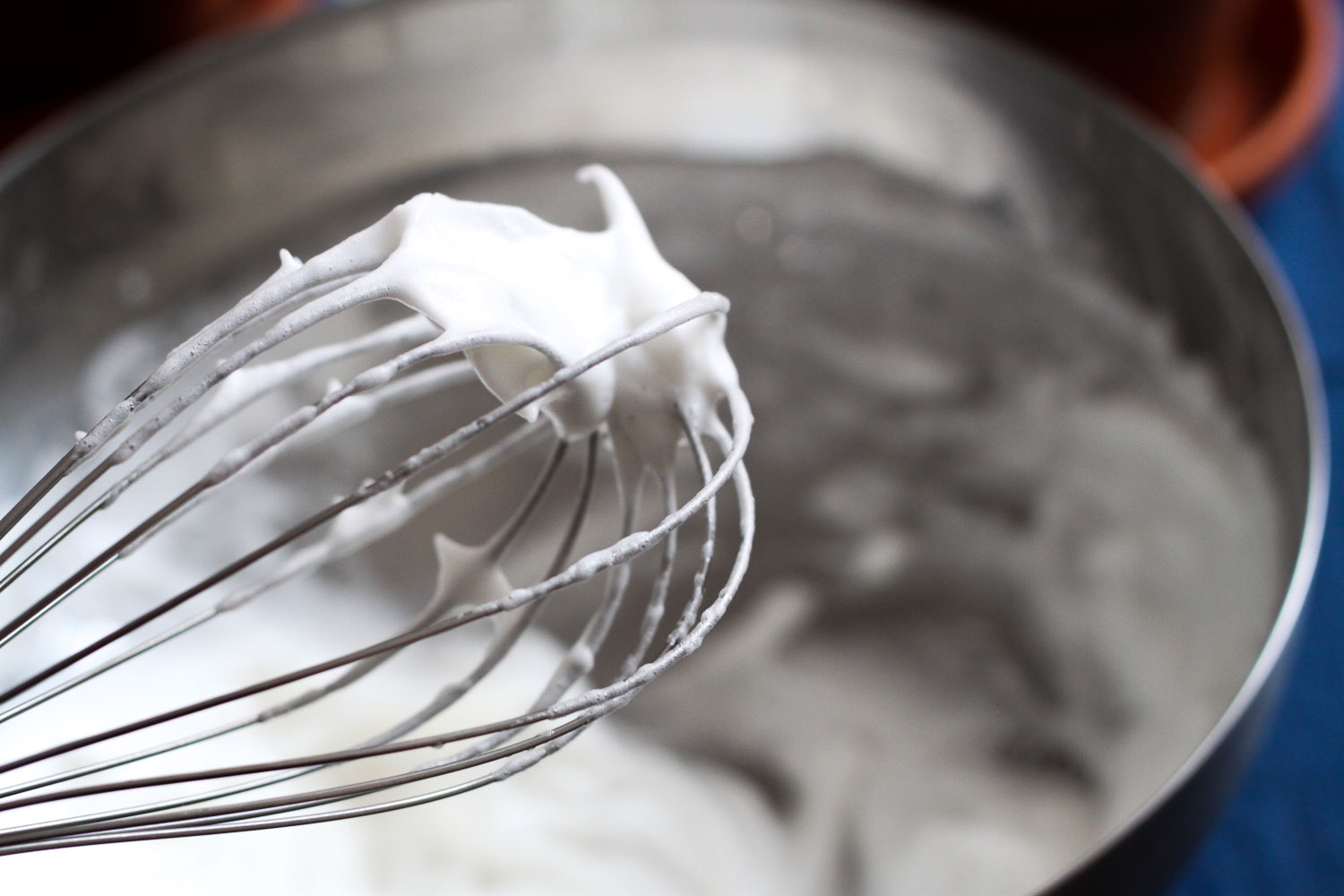
And then there’s an entire world of meat products that feels so specifically German, especially once you start talking about sausages (Knacker, Krakauer, Bockwurst, Gelbwurst, Weißwurst, Mettwurst…). There are sausages hacked up in jars and preserved in fat or aspic, there’s fatty pork Speck sold in smoked blocks or in cubes, potted meats proud of their regional heritage.
Currywurst especially suffers greatly in translation. A famous snack-stand food from Berlin, it’s often called “curried sausage” in English, but I find that too vague, even misleading. A Currywurst is a Bratwurst (with or without skin) cut up into medallions, doused in ketchup mixed with curry powder, and served with a white roll. It’s so straightforward and simple, a real everyman’s dish, whereas “curried sausage” feels elite, like some kind of fancy fusion food.
Or take the simple sandwich. In Germany, you’ve got the Stulle, which is bread with butter or maybe a piece of deli meat or sliced radishes. It could be spread with Schmalz, farmer’s cheese, or cream cheese. It can be open-faced or closed. But if it gets more complicated than that, it stops being a Stulle and becomes a belegtes Brötchen. These you can buy at every bakery, and it’s any kind of roll (whole grain, seed, white) filled with assorted cold toppings: lettuce, hard-boiled eggs, salami, cheese, cucumbers, tomatoes. But there are never too many of these toppings at once. Because once it starts getting any fancier, it just goes by its English appellation: sandwich.
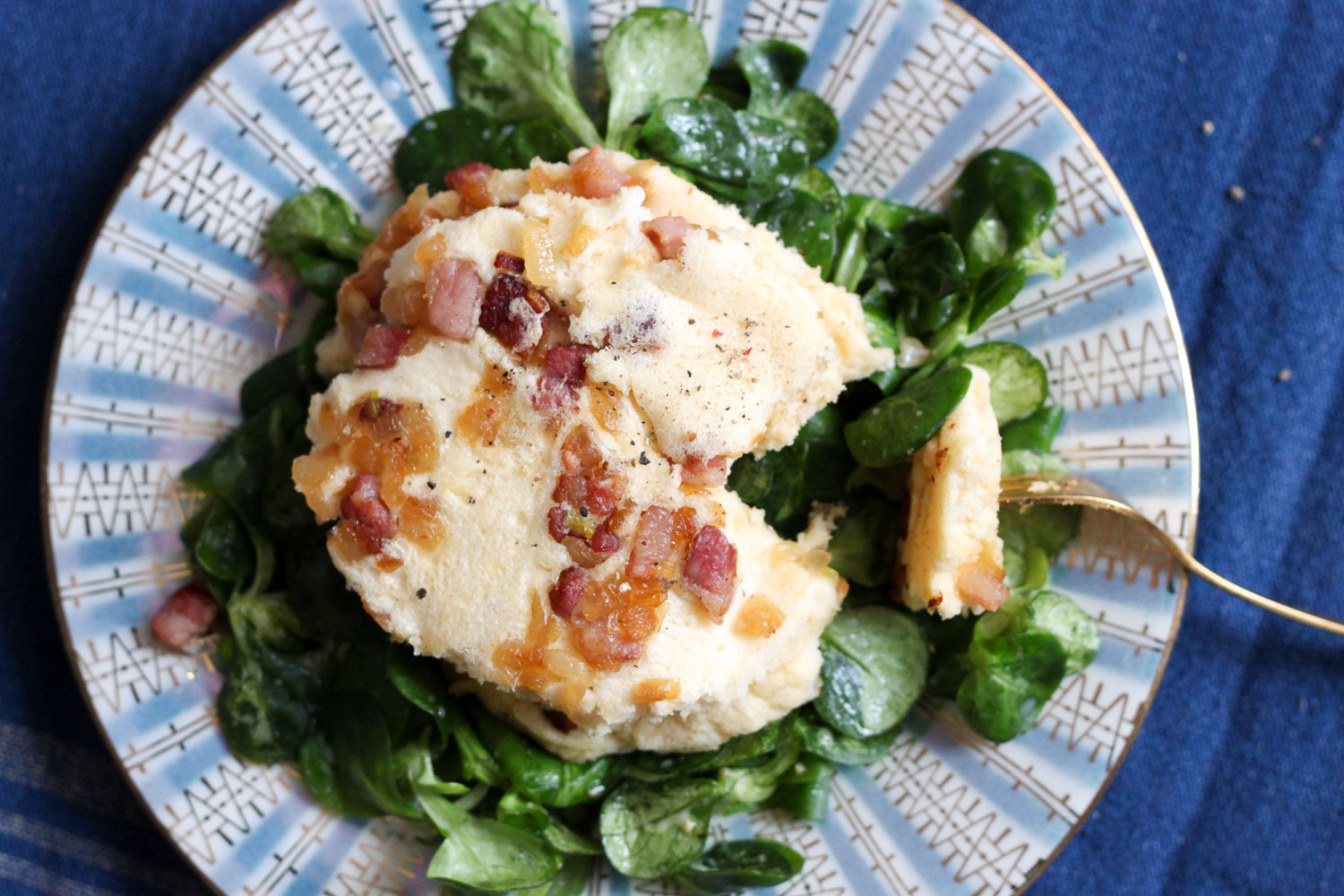
And then there are Eierkuchen. If you look up a translation, you’ll be told they’re just “pancakes.” But Eierkuchen, though like pancakes, are not pancakes – at least not by American standards. They have the chewy texture of a crêpe mixed with the fluffiness of a pancake. But what to call it in English, then? Literally translated, it means “egg cake,” which sounds, let’s be honest, awful. And you can’t call them German-style pancakes, since there are also pancakes in Germany (Pfannkuchen). And while “Pfannkuchen” and “Eierkuchen” are sometimes used interchangeably, they are not the same thing. And so, as is often the case in situations like these, I’m going to go with the most cop-out of solutions, and just not translate it at all.
There’s a lovely cookbook I’ve written about before called Kittys Berlin-Kochbuch, which – no surprise – is a cookbook about Berlin. As far as I know, no translation exists, perhaps because the task feels too hopeless. The book is already packed with tidbits about foods and phrases specific to Berlin that have to be translated to universal German. And I’ve always found, with German translation, that as soon as you transform regional dialect into English, it flattens out all the uniqueness, so you’re left understanding the meaning, but not the character.
In any case, the book is full of beautiful illustrations, and I love to skim through the pages looking at these classic Berliner recipes with often funny-sounding names. There’s herring and eel, cucumber salad, potato salad, fish soup, liver, potato pancakes, ham hocks, sauerkraut, stewed greens, and roast goose. I’m always enchanted by recipes that belong to a specific place or time, and Eierkuchen, in part because of its resistance to translation, seemed like an especially appealing dish.
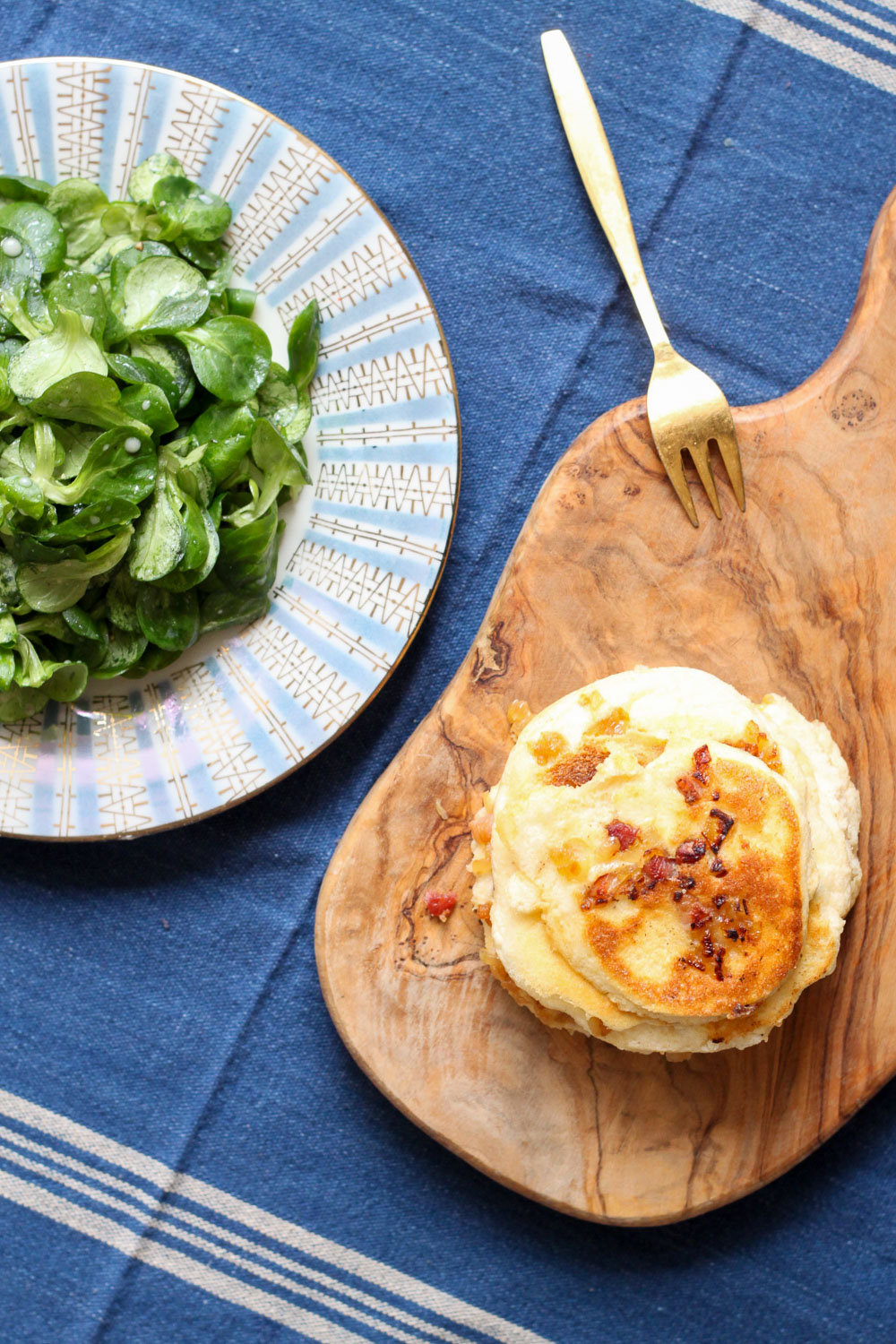
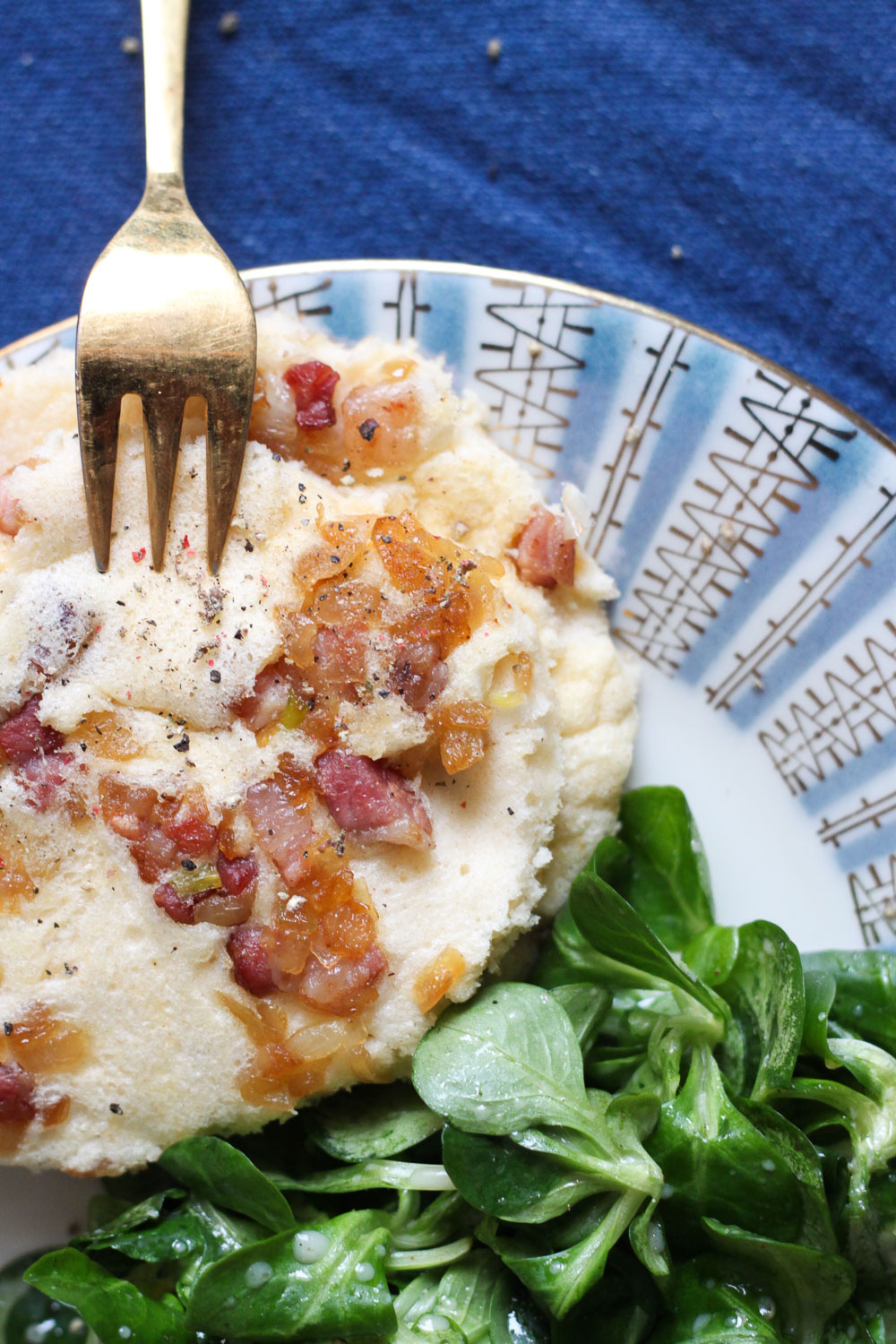
Unlike in a pancake batter, to make Eierkuchen, the eggs are first separated. The yolks are beaten to a smooth paste with flour and milk, while the whites are whipped into a meringue, which is then folded into the yolks. This gives the Eierkuchen their uniquely fluffy, yet chewy texture. From here on out, the process is quite similar to making regular pancakes, and I’m sure you could eat Eierkuchen – even the kind made with Speck and onions like in the recipe below – drizzled with maple syrup. But you could also be more German about it, and eat it with salted sour cream or thick yogurt and jam or even applesauce and cinnamon.
I had them for lunch with a simple mâche salad dressed with Dijon-vinaigrette, as suggested by Kitty. But for dinner, I warmed up the leftover Eierkuchen in the oven, and ate them as tacos topped with cumin- and ancho-chile-spiced ground beef, spicy, pickled red onions, and tomatoes. A reminder that, although I’m coming up on six years here, I haven’t gone all German just yet. And probably, I never will – because in food, as well as language, sometimes a mash-up just makes the most sense.
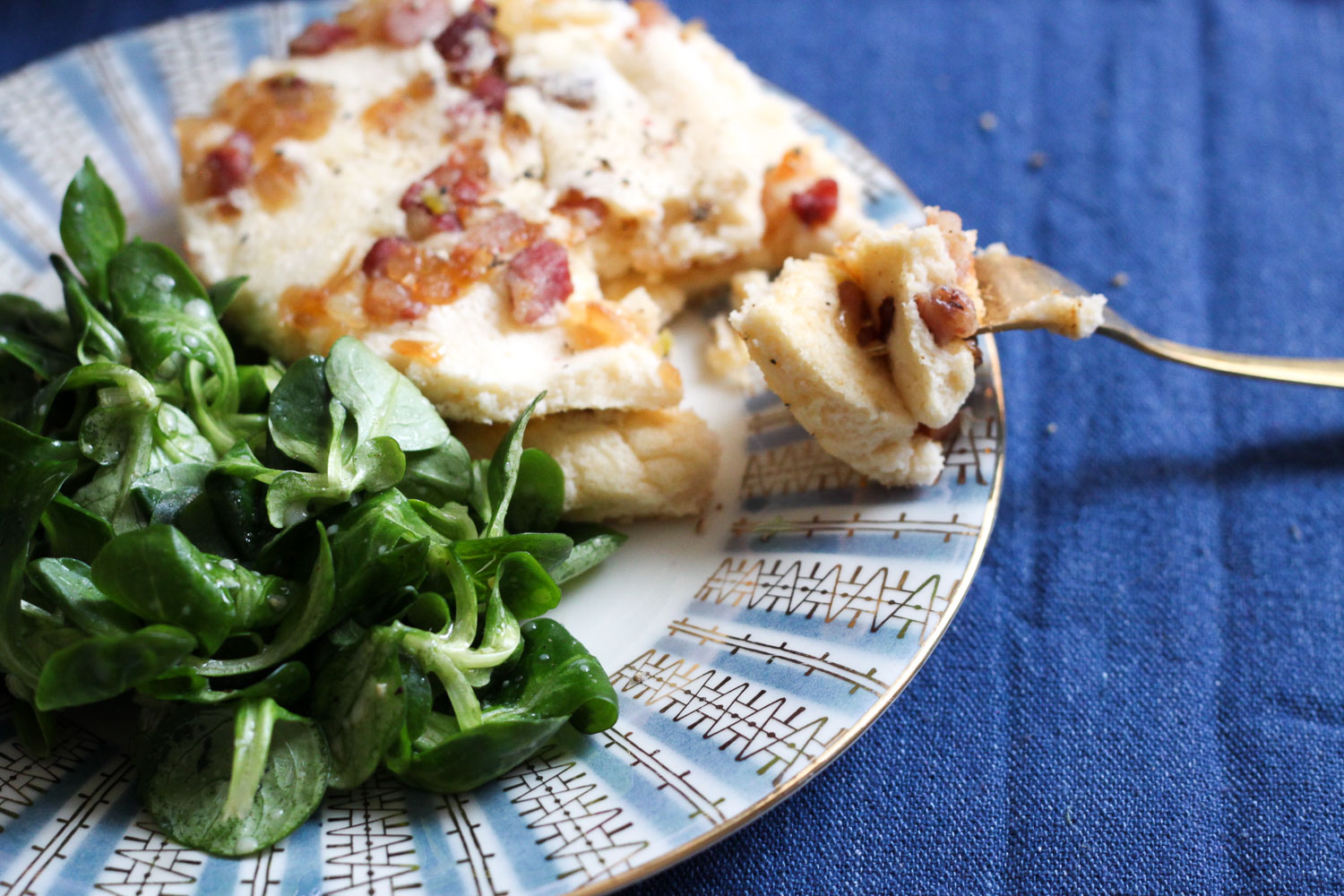
Eierkuchen with Speck
By now, I think “Speck” has become a word that’s made its way into English culinary conversations – and as such, supermarkets. If not, 5 thick-cut, fatty slices of bacon, chopped, are an excellent substitute, as are cubed lardons. Eierkuchen make a lovely lunch served with a side salad of baby greens or mâche with a dressing of Dijon, white wine vinegar, olive oil, salt, and pepper. Adapted from Kittys Berlin-Kochbuch. Serves 2.
1 tbsp. (7 g) butter, plus more for frying
1/3 cup (75 g) fatty Speck, cubed
1 medium yellow onion, diced
3 eggs
1 cup (250 ml) milk
1 cup (125 g) flour
Salt & freshly-ground black pepper, to taste
Ground nutmeg, to taste
Heat 1 tbsp. butter in a frying pan, and when it just begins to bubble, add cubed Speck or bacon. When the Speck begins to crisp and brown, add onion and sauté for about 3 minutes, until the onion is glassy. Remove from heat and set aside to drain on a paper towel.
Preheat the oven to 250 ºF (120 ºC).
Separate egg yolks from whites. Whisk the egg yolks to a smooth batter with milk and flour. Season to taste with salt, pepper, and nutmeg. Go easy on the salt if your Speck is very salty.
Add a pinch of salt to the egg whites, and whisk to stiff peaks. Put away those beaters, and just do it by hand. With a whisk. It doesn’t take more than five minutes, it’s a bonus workout for your upper arm, and how else will you ever get your German grandma Girl Scout badge?
Gently fold the egg whites into the yolk mixture.
Heat a dab of butter in a non-stick skillet over high heat. Drop batter into the skillet by the spoonful. This part is just like making pancakes. Let the Eierkuchen cook for about 2 minutes on one side, until you see little bubbles and the edges are no longer wet. Sprinkle a little of the Speck and onion mixture onto the top of the Eierkuchen, and gently flip. Cook on the other side until golden-brown. Keep in the oven until ready to eat.
Repeat until all the batter is used up. If your butter starts burning, don’t be afraid to turn the heat down.
Best when eaten hot and fresh from the skillet.
Love the “mountain” and “Gebirge” comparison! Made me think about climbing each of them verbally–about the different journeys each language invites you to take.
I always grew up separating the whites from the yolks when making pancakes. Makes such a fluffy difference.
I don’t know how I only just stumbled across your blog, but it’s lovely, and I love what you have to say here about the language (and food). I love the regional diffferences, too: they’re not called Stullen down my way (in Hessen) and I’ve not heard of Eierkuchen either, but these look delicious and I shall definitely be giving your recipe a go (and looking up Kitty and her cookbook). Thank you for sharing it!
Thank you! I’m glad Kitty will be making her way down south! The book is such an absolutely lovely portrait of Berlin culture told through recipes and art.
Nice writing. Really enjoyed this. Spent some time in Berlin last year and found this blog looking for an eierpunsch recipe :). Not sure why this is all caps.